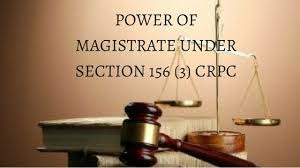Reference and Revision are two important provisions under the Code of Criminal Procedure that help in maintaining the fairness of the judicial process. These provisions are used when an error is perceived to have occurred during the trial or during the investigation.
Reference
A reference is a procedure where a subordinate court seeks the opinion of a higher court on a legal question that arises during a trial. The reference is made by the subordinate court when it is unable to decide a question of law that has arisen in the case. The higher court then gives its opinion on the question, which is binding on the subordinate court.
Revision
Revision is a process where a higher court examines the legality, propriety or correctness of any order or proceedings passed by a subordinate court. The revisional court can either confirm, modify, or reverse the order of the lower court. Revision can be initiated either suo moto or by an application made by the aggrieved party. However, it must be noted that revision is not an appeal and the revisional court cannot re-examine the facts of the case.
Reference
- Purpose: A subordinate court can refer a question of law to a higher court when it’s unable to decide a legal issue that arises during a trial.
- Initiation: The reference is initiated by the subordinate court.
- Scope: The higher court’s opinion on the legal question is binding on the subordinate court.
- Legal Basis: Sections 395 and 396 of the CrPC address reference.
Revision
- Purpose:A higher court (like the High Court or Sessions Judge) can examine the legality, propriety, or correctness of an order or proceeding passed by a subordinate court.
- Initiation:Revision can be initiated either by the higher court itself (suo moto) or by an application from an aggrieved party.
- Scope:The revisional court can confirm, modify, or reverse the order of the lower court, but it cannot re-examine the facts of the case.
- Legal Basis:Sections 397 to 405 of the CrPC cover revision.
Key Differences:
| Aspect | Reference | Revision |
|---|---|---|
| Definition | A process by which a subordinate court seeks guidance from a higher court on a point of law. | A remedy allowing higher courts to examine and rectify errors in decisions made by lower courts. |
| Purpose | To clarify substantial questions of law and ensure uniform application of legal principles. | To address procedural or jurisdictional errors causing injustice. |
| Initiation | Initiated by the subordinate court on its own or as directed by the law. | Typically initiated by an aggrieved party seeking redress. |
| Jurisdiction | Typically made to the High Court by the subordinate court. | Exercised by Sessions Courts and High Courts. |
| Legal Provisions | Governed by Section 395 of the CrPC. | Governed by Sections 397 to 401 of the CrPC. |
| Nature | Consultative and proactive. | Supervisory and corrective. |
| Scope | Narrow scope, focusing specifically on a legal question or jurisdictional issue. | Broad scope, including procedural and jurisdictional errors but not re-appreciation of evidence. |
| Binding Nature | The opinion provided by the High Court is binding on the subordinate court. | The revisional court’s decision is final but does not replace the trial court’s judgment. |
| Who Can Invoke | Usually invoked by the subordinate court when it faces ambiguity in legal interpretation. | Typically invoked by a party to the case who is aggrieved by the lower court’s decision. |
| Effect on Case Timeline | May delay proceedings as the lower court awaits the High Court’s guidance. | Aims to correct errors without significant delay to ongoing proceedings. |
| Applicability | Used for addressing substantial legal questions. | Used for rectifying jurisdictional, procedural, or legal errors. |
| Outcome | Provides clarification or authoritative interpretation on legal questions. | May result in the correction, modification, or reversal of the lower court’s order. |
| Example Situations | Uncertainty regarding the constitutionality of a statute or interpretation of a legal provision. | Misapplication of a legal provision or exceeding jurisdiction by a subordinate court. |
If incase you need any legal assistance you can now try our AI Legal Advisor.



